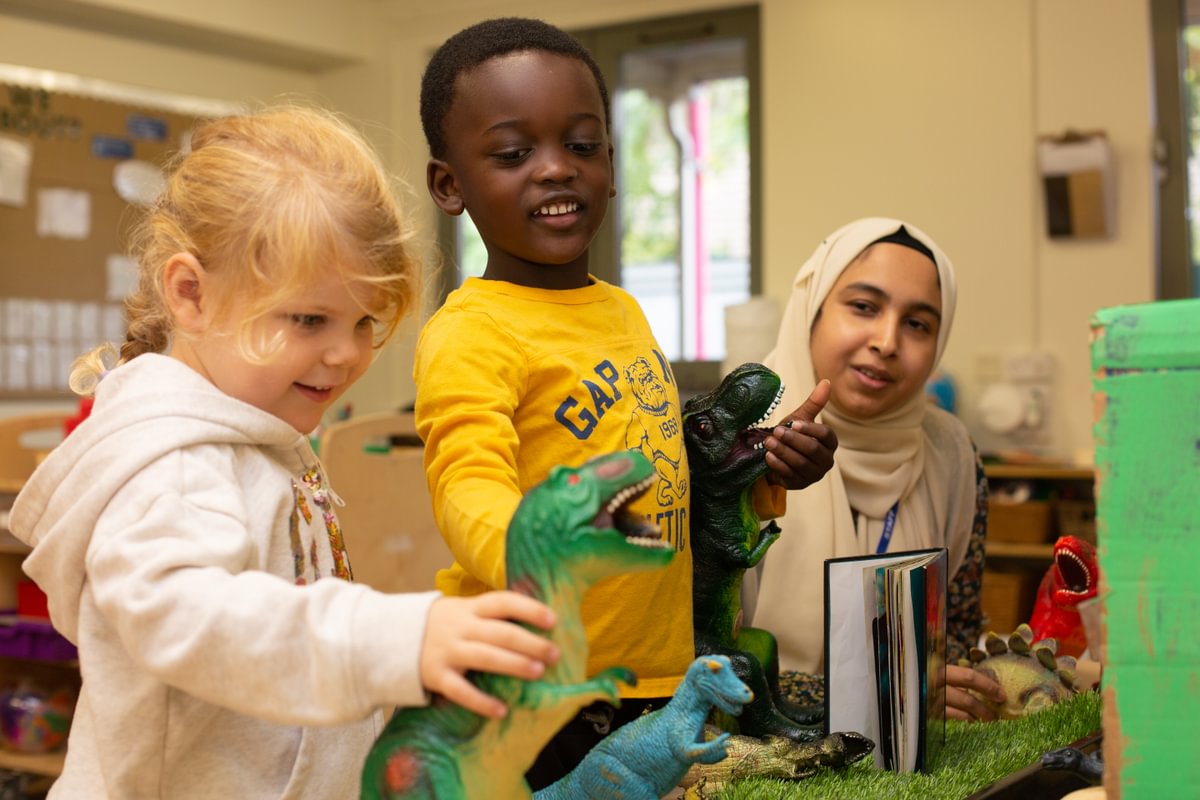
Could Social Enterprises fix the Childcare System?
Why the social enterprise model could be the solution to fixing England’s broken childcare system by expanding access to the communities that need it most. England is…
September 3rd 2019
I operate in two worlds; Early Years and Social Enterprise. Every now and then they converge, and I find myself invited to a most unusual or unexpected event. That happened on Saturday when I was invited to join a lively panel in the Economics Tent of the Big Tent Festival at Mudshute Farm
I had never been to Mudshute before. It’s a huge green space compared with my local farm at Capel Manor in Crystal Palace Park or Vauxhall City Farm.
The panel was chaired by Lord Victor Adebowale, CEO of Turning Point and Chair of Social Enterprise UK plus three others (and me):
• Zoe Nicholson (CEO, Here)
• Helen Paisley (Regional Operations Director, Community Dental Services Bedford)
• Liam Halligan Economic Journalist on Telegraph and Spectator
We were asked to explore whether the business model of social enterprise (with its central social or environmental purpose) is a better solution to the UK productivity decline than the current model of focusing solely on profit.
In order to tell the story of LEYF within the context of the current business challenges we face, I rang the oracle of research Jo Verrill from Ceeda and we reflected on the Spring 2019 report
I opened by explaining that nurseries have two clear purposes: one is to support parents to work and the other is to support children to learn, especially those from challenging backgrounds. I recited the raft of evidence which supports this including the most recent OECD research. I reminded them that childcare is part of modern infrastructure especially in the cities where property costs are impossible unless there are two people working.
I then described the purpose of a social enterprise is to shape a business model that integrates those two separate functions of childcare into a business model where one can support the other. This means not having one or two places for the “poor” or being entirely dependent on funded places BUT a way of enabling a significant number of children from poor and disadvantaged backgrounds to attend an integrated community nursery which is considered high quality.
Quality is, as John Ruskin said, never an accident, always the result of intelligent efforts. For those who have forgotten what makes high quality, here is the formula.
At LEYF we have designed a fee structure that allows us to subsidise up to 40% of the children from families living in poverty or with disadvantage who have limited or no access to good quality nurseries (last year that was 1,600 children). Social enterprises are therefore childcare businesses with powerful social missions that are determined to support significant numbers of children from poor homes by using the profit to drive every element of the quality formula. You might want to listen to my TED talk to better understand this.
But how can they do this when we are operating within a political climate that starves the childcare sector of a staggering £662million a year, where local authorities are complicit in reducing funding and one in 10 settings are worried that they will not be trading next year – especially those in areas of deprivation?
If you look at the responses from nearly half the sector, then having more social enterprise may be essential. It’s a model that can offer an alternative to the simple profit-driven business approach. It’s not a rejection of the profit model but a sensible addition. It also limits what is being allowed to happen, however furtively, which is going to hit the poorest children the most. The CEEDA report found that what is happening in the sector is in direct opposition to what makes good quality which is essential for children from poor backgrounds. Below are some of the shock findings:
• 50% of settings have reduced training. A disaster given that every staff survey says that training and opportunities to gain qualifications is key to retaining and motivating staff so they become qualified and better engaged.
• 43% have cut back on children’s resources. Staff operating without the tools of their trade! I have heard about settings that now relies on staff to purchase extras.
• 41% are lowering staff to child ratios. Horrifying. The quality of services depends on high staff to child ratios. Good quality requires staff to have sensitive personal contact with children, lots of direct communication and time for cuddles and stories and the warmth of human contact.
• 20% have reduced the mix of qualifications. This means that there are fewer qualified staff working in the sector.
• 16% are using more staff on zero-rated contracts. 19% are employing part-time staff who are below the threshold for employer national insurance (19%) and auto-enrolment contributions (17%). This is an invidious erosion of staff rights to job security and employment rights.
• 19% are limiting or reducing the quality of food. Shameful in a world where 1 in 4 children are obese and at risk to all the attendant health risks and this is higher among the poor.
• 13% are employing younger staff who are below the minimum wage threshold. That’s a really good start in the world of employment eh?!
So, here’s the question. If those businesses in childcare which must by their design focus solely on profit have to cut the very things that deliver quality to children to create this profit, then WHY haven’t we got more social enterprises? Surely, it’s a sensible (and logical) solution to the wider problem.

Why the social enterprise model could be the solution to fixing England’s broken childcare system by expanding access to the communities that need it most. England is…

Continuing with the Christmas Advent tradition, on day eleven of Christmas Advent 2019 let’s reflect on what the pedagogy looks like in practice? Read my recent post reflecting on pedagogy…
The EECERA Conference is an annual event and I always try and attend accompanied by LEYF staff where possible. It’s much better fun when we go as…